Euro 2024: Waiting for the chop
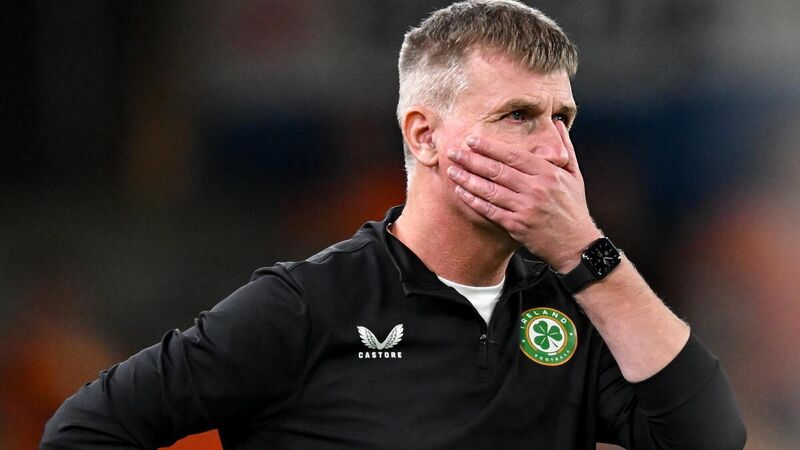
Republic of Ireland manager Stephen Kenny during the UEFA EURO 2024 Championship qualifying group B match against Netherlands at the Aviva Stadium in Dublin. Picture: Stephen McCarthy/Sportsfile
FAI CEO Johnathan Hill and director of football Marc Canham faced the media on Thursday to outline some of the critical issues facing the organisation regarding the review of the recent Women’s World Cup and the fallout of Vera Pauw’s acrimonious departure as manager, the ongoing debt concerns of the FAI, and most keenly anticipated of all – the organisation’s stance on Stephen Kenny’s tenure as manager of the misfiring men’s team.
In a rather typical FAI approach, Hill and Canham gave their unquestioning support to Kenny to remain as manager despite the indifferent results. But then refused to be drawn on Kenny’s future beyond his contract expiration in 2024.
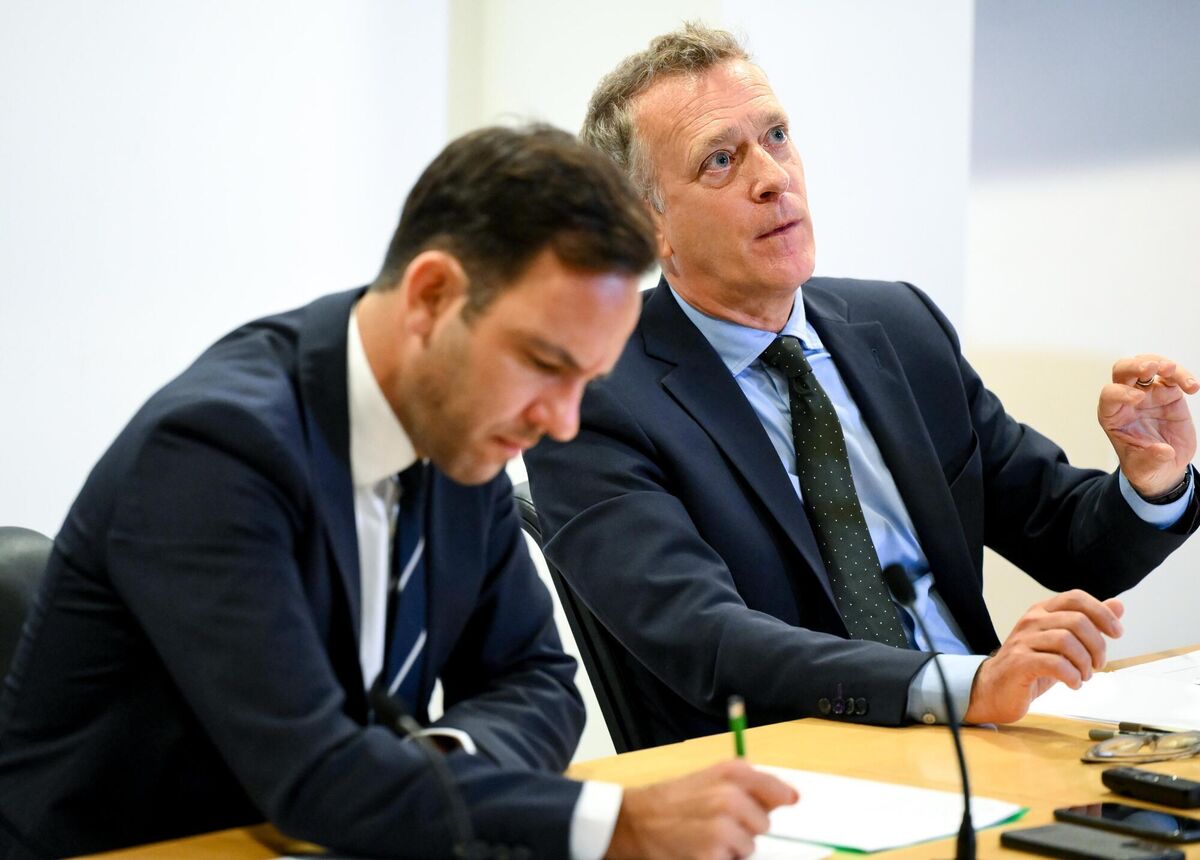
Tellingly, both men expressed their disappointment in our two recent defeats at the hands of the French and the Dutch. Expressing the opinion that Irish football badly needs a qualification, which does not offer Kenny and his supporters much confidence of an extension to his contact come next year.
The best that the two executives offered was that there will be an in-depth review of the Euro 2024 qualifying campaign, which again will not be music to the ears of any supporters of a Kenny management extension should they lose to Greece and finish fourth in our qualification group.
So Kenny remains boss until the end of his contract, but the remaining time on the job will have the air of ‘dead man walking’. Rather than whipping off the plaster on the Kenny managerial wound, they have decided to let it slowly drop off in a soggy mess of disappointment.
Of course, the main reason for this is that there is no ready alternative to step into Kenny’s position and with our Euro 2024 qualification on life-support as it is, there is little to be gained by pulling the plug and the resulting hassle involved in going through an extended selection process.
Germany parted company with their manager Hans Flick after a humiliating 4-1 friendly defeat at the hands of Japan, and on the back of a series of poor performances and a very bad Qatar Word Cup (by German standards). Remarkably, this is the first time a German manager has been fired from the position since the formation of their national association in 1926.
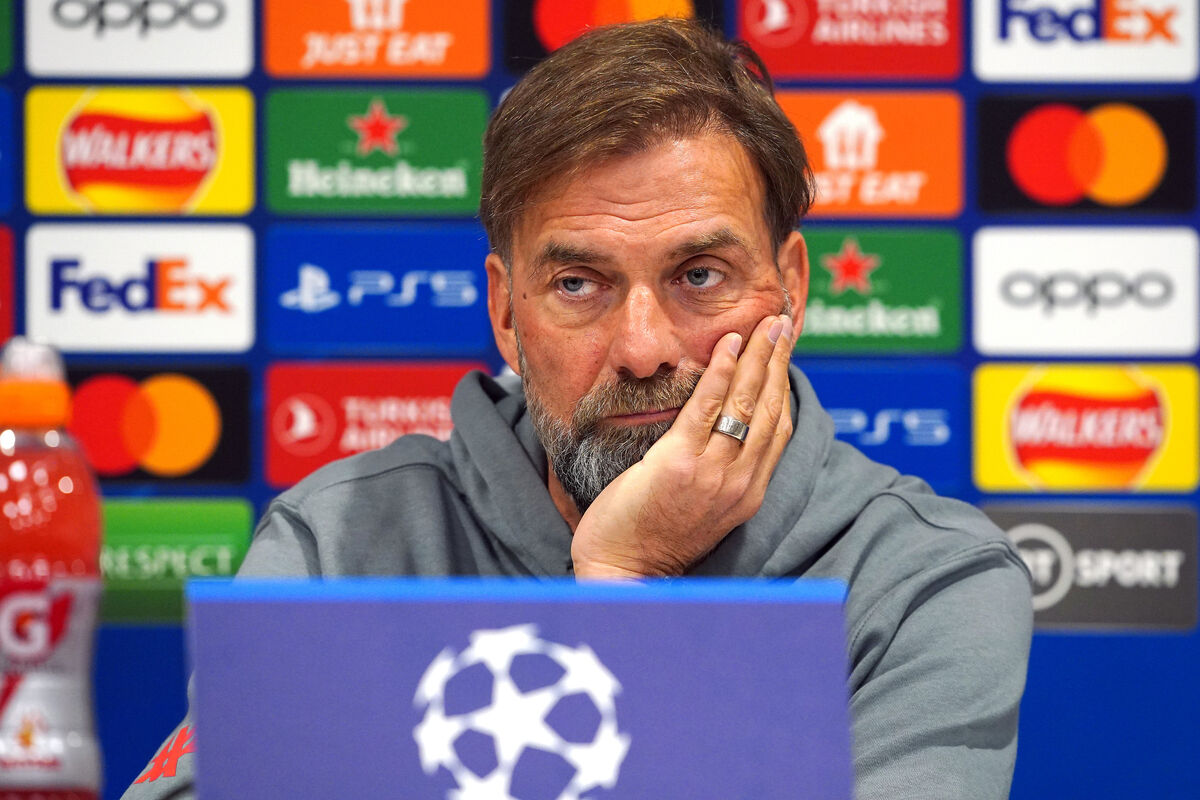
Worryingly for Liverpool fans, but not surprisingly, Jurgen Klopp’s name popped up quickly at the top of the list of replacements. But offering relief for the Anfield faithful is the knowledge that Klopp has a strong commitment to staying at the club and has expressed his opinion that “in the future” he would be honoured to take up the position at the national post, but not just yet.
Former boss Rudi Voller will act as the interim boss, but he may yet be convinced to return full-time to The favourite, beyond Klopp, for the job is Julian Nagelsmann, formerly of Bayern Munich, with former Netherlands’ boss Louis van Gaal, Austrian coach Oliver Glasner, and former Man United boss Ralph Rangnick also shortlisted to take the job. One dark horse also included is former Liverpool and Bayern star Xabi Alonso, who is currently at the helm of Bayer Leverkusen.
No such impressive list exists for the Irish job, even though the bookies have been busy throwing out the odds.
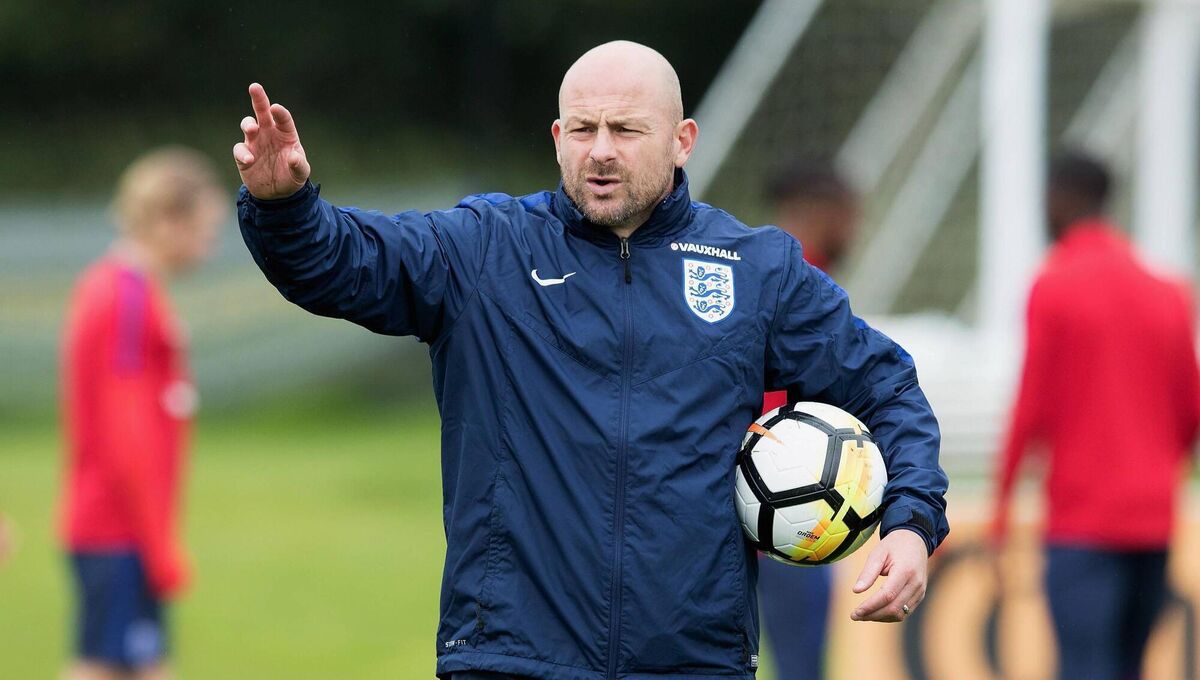
Current England U21 boss and former Irish international Lee Carsley is the 11/4 favourite, while Neil Lennon is 11/2 and Chris Houghton is at 7/1.
The usual old players list of contenders such as Roy Keane, Robbie Keane, Keith Andrews, and Damien Duff at (10 to 12/1) respectively was rolled out.
Other mentions are; Ipswich boss and Northern Irishman Kieran McKenna, former player John O'Shea and even Ole Gunner Solksjaer.
And what managerial hopeful list cannot include a Sam Allardyce (11/1) mention or the return of Mick McCarthy at 16/1?
While the bookies’ list is long, it is not that encouraging for any hope of a new route to success.
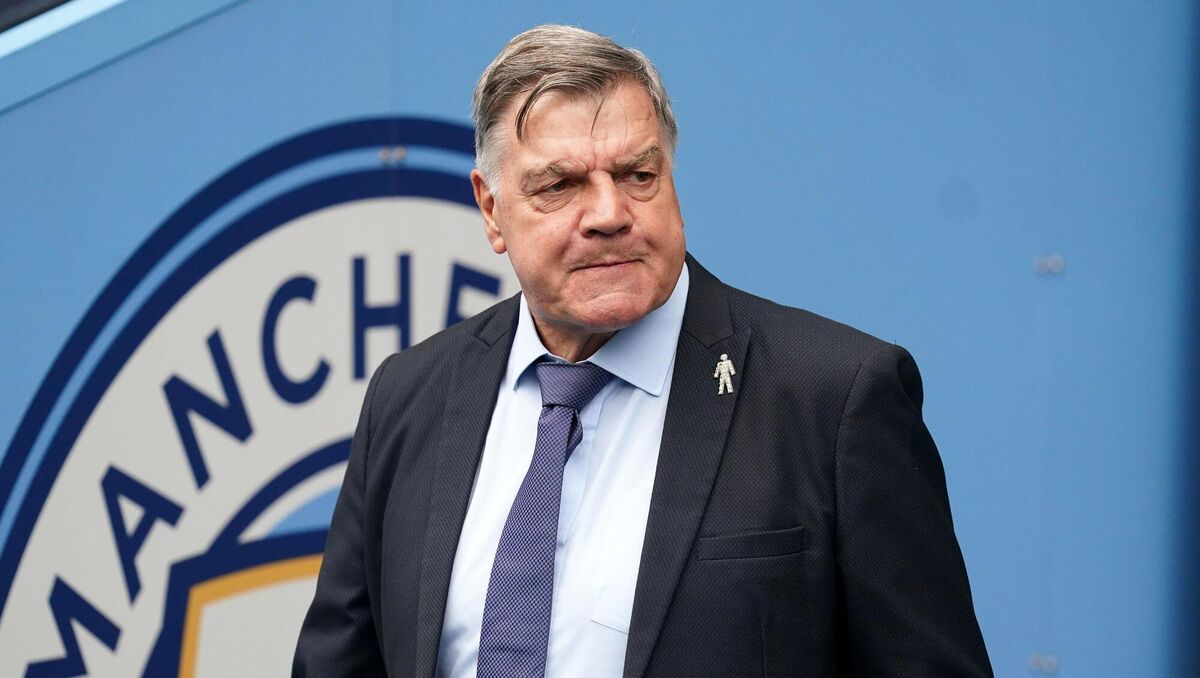
The pundits seem almost universal in their agreement that the time for Kenny’s departure is overdue. The one notable exception being venerable analyst Johnny Giles, who thinks Kenny has done well with the limited resources and pool of talent available to him.
Kenny has done his best to instil an ethos of using the ball, striving to maintain possession, working it from one end of the field to the other. They have entertained, at times, even if results have been far from optimal.
This is a results-based enterprise, and in that respect the Kenny era has not achieved anything. But it can be argued the style of play, while ultimately ineffective, was never as ugly as many of the more accomplished Irish managers. It is unfortunate that Kenny’s legacy will probably be remembered for its lack of success when his brave attempt to drag our style and tactics into the 21st century will long be forgotten.









 App?
App?







